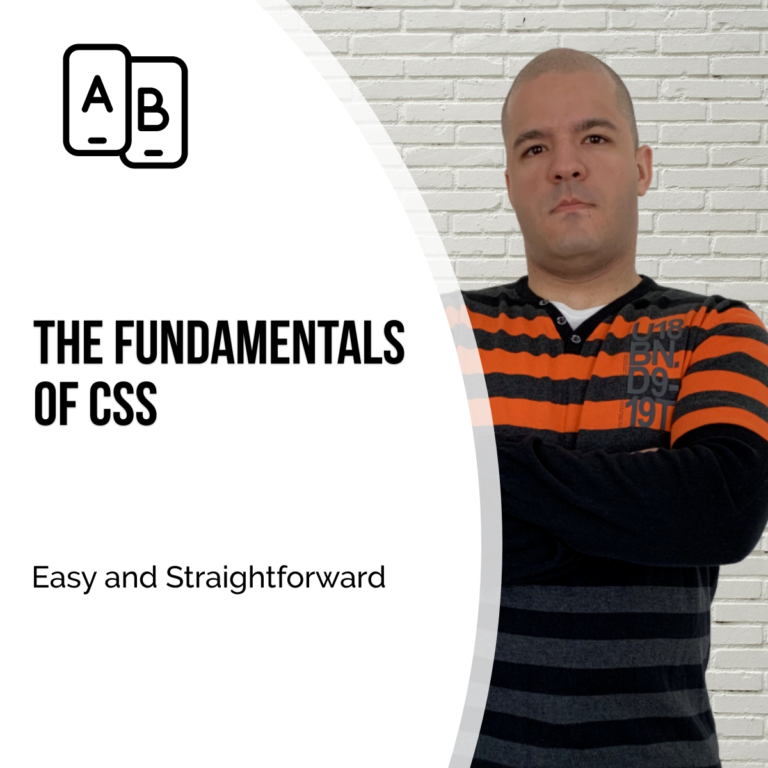See the Pen Fundamental of HTML by Marketing 4 Peers (@Marketing-4-Peers) on CodePen.
Find bellow a short explanation of the main HTML tags.
<!DOCTYPE html>: Declares the document type and version of HTML being used.<html>: Encloses the entire HTML document, acting as the root element.<head>: Contains meta-information about the document, such as the title, character encoding, and links to stylesheets or scripts.<title>: Sets the title of the webpage, which appears in the browser’s title bar or tab.<body>: Encloses the content of the webpage, such as text, images, links, etc.<header>: Defines the introductory section of a webpage, typically containing the logo, navigation, and other heading information.<nav>: Represents a section of the page intended for navigation links, such as menus or table of contents.<main>: Specifies the main content of the document. It should only appear once on a page and contain the content unique to that page.<h1> to <h6>: Define headings, with<h1>being the highest (largest) and<h6>the lowest (smallest).<p>: Represents a paragraph of text.<a>: Defines a hyperlink, used to link to other pages or resources.<img>: Embeds an image into the page. Requires asrcattribute to specify the image source.<ul>,<ol>,<li>: Create lists.<ul>for unordered (bullet) lists,<ol>for ordered (numbered) lists, and<li>for list items.<div>: A generic container used for structuring and styling sections of the page.<span>: Inline container, mainly used for applying styles or grouping small pieces of content.<form>: Creates a form for user input. Often paired with<input>,<button>, and other form controls.<button>: Represents a clickable button, often used for submitting forms or performing actions.<footer>: Represents the footer section of the document, typically containing metadata, copyright, or contact information.
Main Input Types:
<input type="text">: A single-line text field.
<input type="password">: A text field where the input is obscured (e.g., for passwords).
<input type="email">: A text field that validates the format of an email address.
<input type="number">: A field for numeric input with options to set min/max values.
<input type="radio">: A circular option that users can select one of a group.
<input type="checkbox">: A box that can be checked or unchecked, often used in forms.
<input type="submit">: A button that submits the form data to the server.
<input type="date">: A field for selecting dates via a date-picker.
<input type="file">: A field that allows users to upload files.
Read Also

The Fundamentals of Javascript (JS) for AB Testing
JavaScript is a programming language that adds interactivity and dynamic behavior to websites. It allows developers to create things like animations, form validations, real-time updates, and interactive features, enhancing the user experience by responding to user actions on the webpage.

The Fundamentals of CSS
CSS (Cascading Style Sheets) is a stylesheet language used to control the appearance and layout of HTML elements on a webpage. It allows you to style aspects like colors, fonts, spacing, and positioning, making websites visually appealing and responsive across different devices.